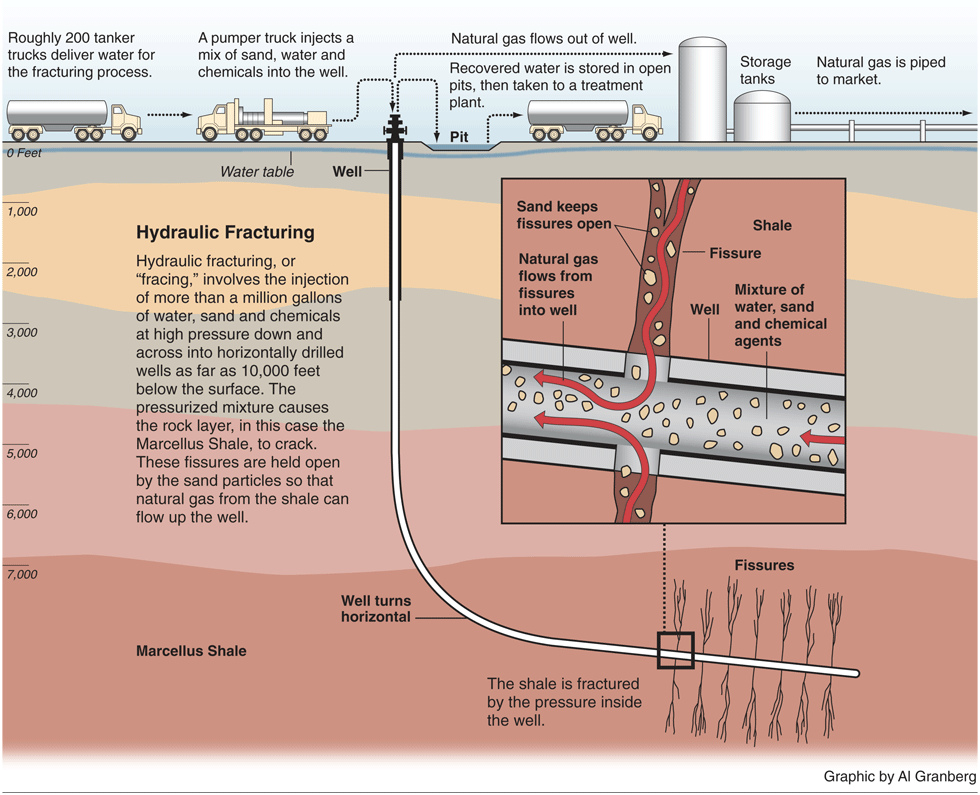Fracking for shale gas is a process that has captured the public’s interest since it was first proposed in the UK (2008).
Hydraulic fracturing initially began in the late 70s for conventional oil and gas fields in the North Sea, and received little resistance compared to 2008s on-shore proposal.
Some have supported the new fracking proposals but many others have opposed it. Those in favour argue the potential benefit for the UK energy sector and economy. Those who opposed it, do so mainly due to the complex procedures that it involves.
The ‘Why The Frack Not’ argument
Shale gas extraction is a highly sophisticated process, involving huge volumes of skilled labour, specialist supplies and costly capital equipment. The Bowland Shale in Lancashire is the most advanced opportunity for the first significant Shale extraction field project in the UK.
Shale gas extraction in the US has been a huge success in terms of the contribution it has made to energy production and the economic value it has added. The results are lower natural gas prices, with a declining dependence on imported natural gas. Pennsylvania gained $3.77B in 2009 from Shale gas extraction, and including the induced effects such as the wider supply chain, this figure rose to $7.7B.
A positive case for Fracking in Lancashire was put forward by ex-Greenpeace leader, Stephen Tindale who claimed that environmental parties need to embrace fracking rather than oppose it, stating that “Britain is facing an energy crisis.” He argued that environmental policies need to focus on cutting out coal as quickly as possible, but to do this, alternatives must be found. We currently import gas from Norway and Qatar – delivered by tanker, which is estimated to be 10% more damaging than our own shale gas would be, considering the total Carbon footprint
The energy crisis has really become more of a threat in the wake of Brexit. Relying on imports for energy leaves the UK open for exploitation, with the possibility of an added tariff, we would be forced to pay the price, regardless of costs due to the necessity of our energy requirement.
Job creation is perhaps one of the biggest factors in support of fracking, especially in Lancashire where unemployment is above the average. The main fracking area ‘the Flyde Coast’ has some dense areas of deprivation due to a lack of job opportunities, and the demise of the hospitality sector that was once rife.
The ‘Frack Off’ Argument
Opposition to Cuadrilla’s fracking centres around damage to the environment and possible unknown side effects related to this technology. When pre-fracking testing was conducted (2011) two small earthquakes occurred in the Lancashire region. Man-made earthquakes have been caused in the past by other mining activities, even as far back as 1755, when a lead mine collapse caused an earthquake in Derby. Man-made earthquakes are usually small and go unnoticed by the public, but because anxiety is high, local opposition to the fracking process claim that unstable structures could collapse and more tremors could follow, especially if commercial extraction was to gain acceptance.
The earthquakes in Lancashire (2011) caused Cuadrilla’s activities to be suspended, but the arguments that oppose the idea that fracking caused the quakes continues to this day. The largest earthquake directly caused by fracking measured 4.4 in magnitude; which was a highly unlikely event and occurred in Canada. A magnitude of 4.4 is “usually felt, but only causes minor damage”. A recent earthquake (December 2016) of the same magnitude occurred in LA and caused no major damage.
The other main concern surrounding fracking is the argument for continued investments in renewable energy rather than, fossil fuels. As mentioned in the previous renewables blog, subsidies awarded to the renewable sector have been cut, leading to some renewable companies going into administration. In general, most people agree that renewables are the technology of the future and would rather see government money going towards projects centred on clean technology.
Does Lancashire need fracking?
When looking objectively at Lancashire’s economic situation the answer is yes! A recent BBC report (Sep 2016) has claimed Lancashire county council will run out of money in 3 years, and by 2021 Lancashire is expected to have a £400M deficit. To make matters worse, cuts of £200M are being made, facilities like libraries and children’s centres will be closed.
Lancashire has the potential to feel the ‘Aberdeen effect’, which has seen industries grow, leisure facilities increase, education (including specialist courses) developed, and most importantly thousands of jobs becoming available.
The North West acted as the heart of the industrial revolution, and still, contains the UK’s largest manufacturing sector along with an already established supply chain – this would just need tweaking to support the commercial extraction of Shale gas.
The impact of shale gas could bolster these embedded resources alongside other local industries: hospitality, retail, finance, insurance and many other services. A local supply chain could be developed and this would have a positive influence on local job creation.
An independent report has claimed that if shale gas extraction in the UK follows a similar pattern to that in the US:
- The hospitality industry should create – 4,500 jobs
- The retail sector would create – 8,500 jobs,
- Finance and insurance would see – 2,500 jobs created
The Fracking conclusion
Despite Lancashire council winning the battle against Cuadrilla’s’ plans to frack, Sajid Javid the communities secretary, over-ruled this decision. He gave fracking the go-ahead, despite the verdict of the council. His reasoning: “economic growth, job creation, and freedom from relying on imports for natural gas”. Of course, this decision has left many people frustrated at the overruling, some feeling that it goes against local democracy. Whilst others view harsh decisions for the longer term good.

